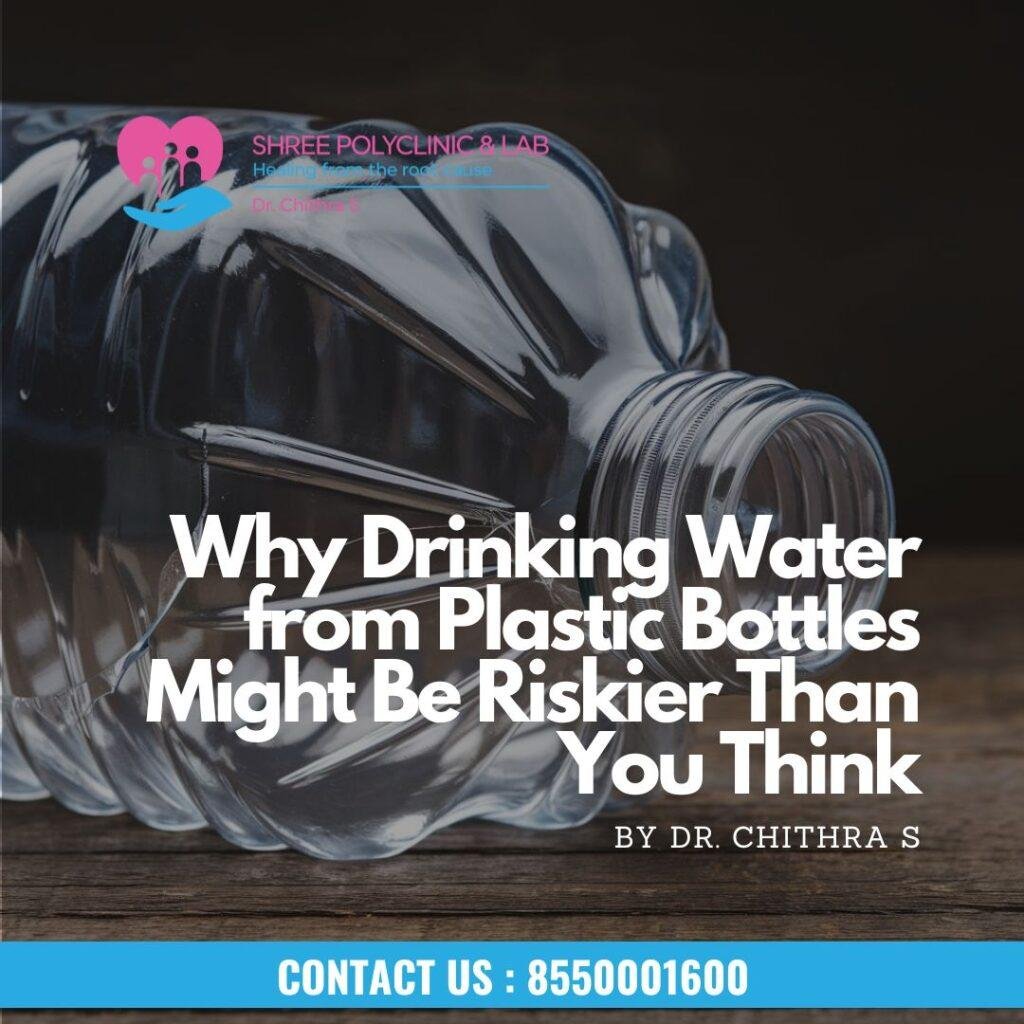We all know that drinking water is essential for good health, but here’s a fact that often gets overlooked: the type of container you drink from matters too. While staying hydrated is crucial, drinking water from plastic bottles may pose hidden risks to your health. If you’re someone who frequently buys bottled water for convenience, it’s time to think twice. Why? Because plastic bottles contain certain harmful particles that could be compromising your well-being.
The Hidden Dangers of Plastic Bottles
Let’s break down the factors that make drinking water from plastic bottles a health risk:
Microplastics: Invisible but Harmful
Microplastics are tiny particles that have been found in various water sources due to the contamination of water bodies. These microscopic particles can find their way into packaged drinking water. Plastic bottles are typically made from polyethylene terephthalate (PET), a plastic commonly deemed safe for food and beverage packaging. However, the long-term effects of ingesting microplastics are still being studied, and some concerns are growing.
Chemical Leaching: When Plastic Turns Toxic
While PET plastic is generally considered safe, certain chemicals like bisphenol A (BPA) can leach into water, especially when bottles are exposed to heat or sunlight. Although BPA has been phased out in most food packaging, other chemicals may still be present. These chemicals can seep into the water, increasing your exposure to harmful substances without you even realizing it.
Health Risks Associated with Plastic Water Bottles
Drinking water from plastic bottles can expose you to chemicals that may interfere with your body’s natural processes. Here are some potential health risks:
1. Hormonal Disruption
Many plastics, especially those containing BPA or similar compounds, can act as endocrine disruptors. This means they interfere with the body’s hormone systems, which regulate everything from growth to reproduction. Some of the key health risks include:
- Reproductive Problems: BPA exposure in men has been linked to lower sperm quality and reduced testosterone levels. In women, it may cause ovarian dysfunction and increase the risk of reproductive cancers.
- Developmental Issues: Pregnant women exposed to chemicals like BPA may have children with developmental delays or behavioral issues. Even small amounts of exposure can impact a child’s growth.
- Increased Cancer Risk: Prolonged exposure to endocrine disruptors has been associated with a higher risk of cancers, such as breast and prostate cancer.
2. Nervous System Problems
Plastic bottles often contain additives like colorants and stabilizers that can leach into the water. Some of these substances are toxic and may affect the nervous system, leading to cognitive impairments and neurological disorders.
3. Immune System Effects
Plastic additives can also compromise the immune system, making individuals more vulnerable to infections and autoimmune diseases. The accumulation of harmful particles in the body could weaken immune defenses over time.
Increased Risks When Plastic Bottles Are Heated or Reused
The danger doesn’t stop with new plastic bottles. When plastic containers are reused or exposed to heat, they degrade faster, releasing even more chemicals into the water. This makes it even riskier to reuse plastic bottles or leave them in hot environments, like inside your car on a sunny day.
What You Can Do: Opt for Safer Alternatives
If you want to protect your health while staying hydrated, consider these options:
- Reusable Water Bottles: Invest in stainless steel, glass, or aluminum bottles. These materials are durable, free from harmful chemicals, and can be reused for years without posing a health risk.
- Tap Water: If your local water supply is safe to drink, fill up a reusable bottle with tap water. This not only helps you avoid plastic, but it’s also more eco-friendly.
- Water Filters: Installing a water filter in your home can improve the quality of your drinking water. Filters remove contaminants, reducing the need to rely on bottled water.
Closing Thoughts: Choose Healthier Options for Hydration
Drinking water is crucial, but where your water comes from matters too. The health risks associated with plastic water bottles include exposure to microplastics, toxic chemicals, and endocrine disruptors. By switching to reusable bottles or filtering your tap water, you can significantly reduce your risk and take a step towards better health.
Book Your Full Body Health Checkup Today to stay on top of your wellness and address any concerns related to chemical exposure or other health issues.

